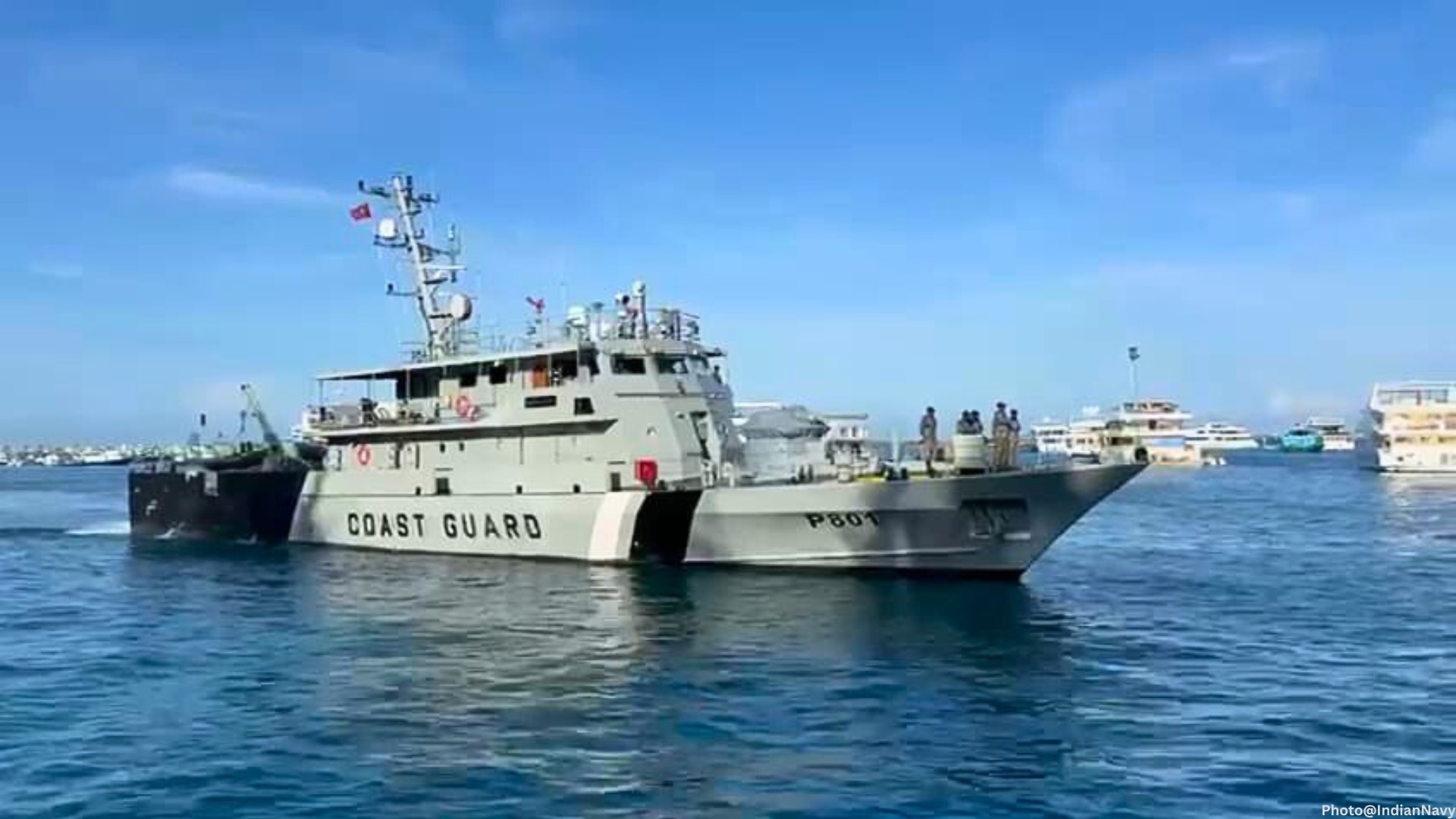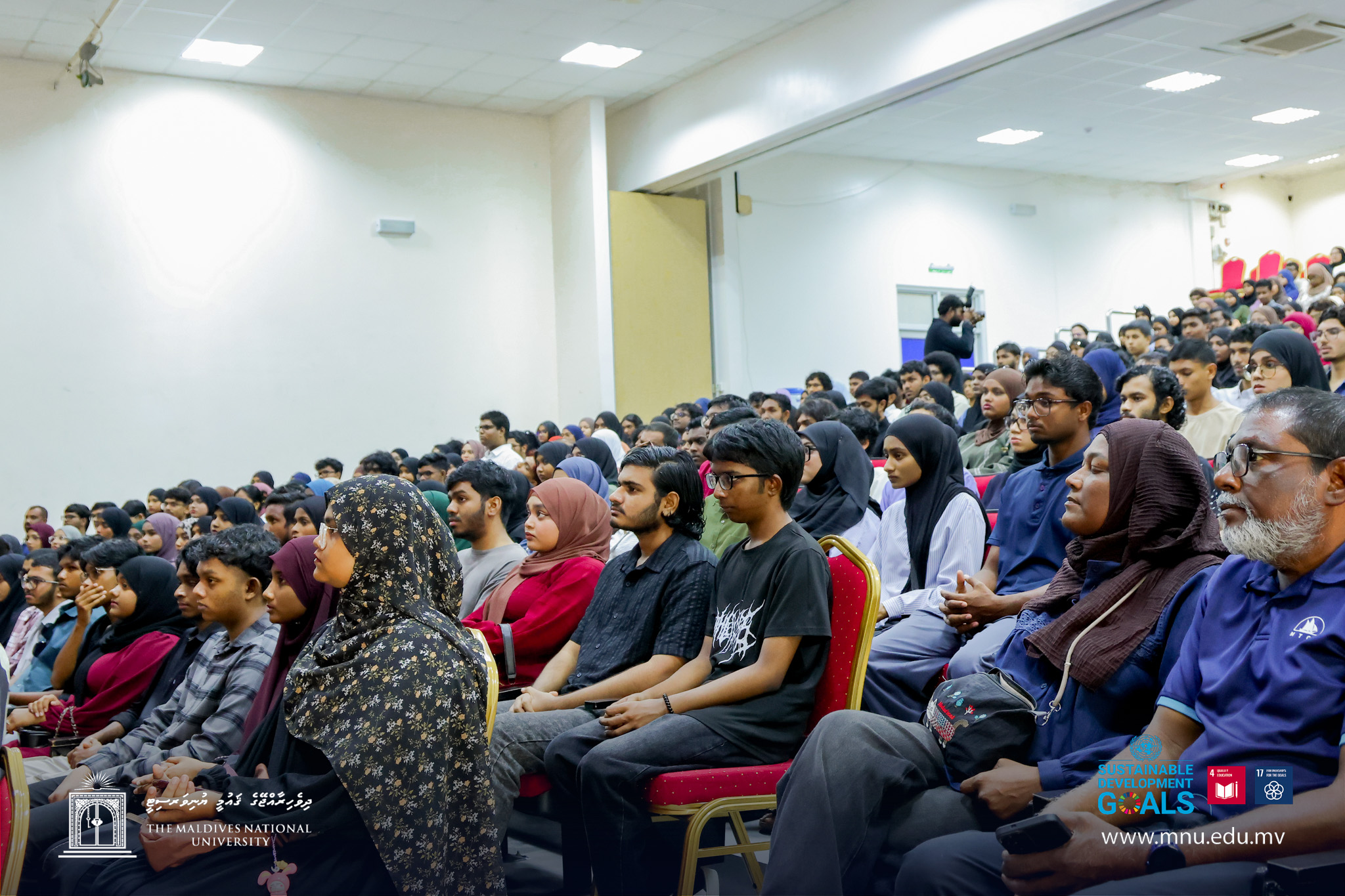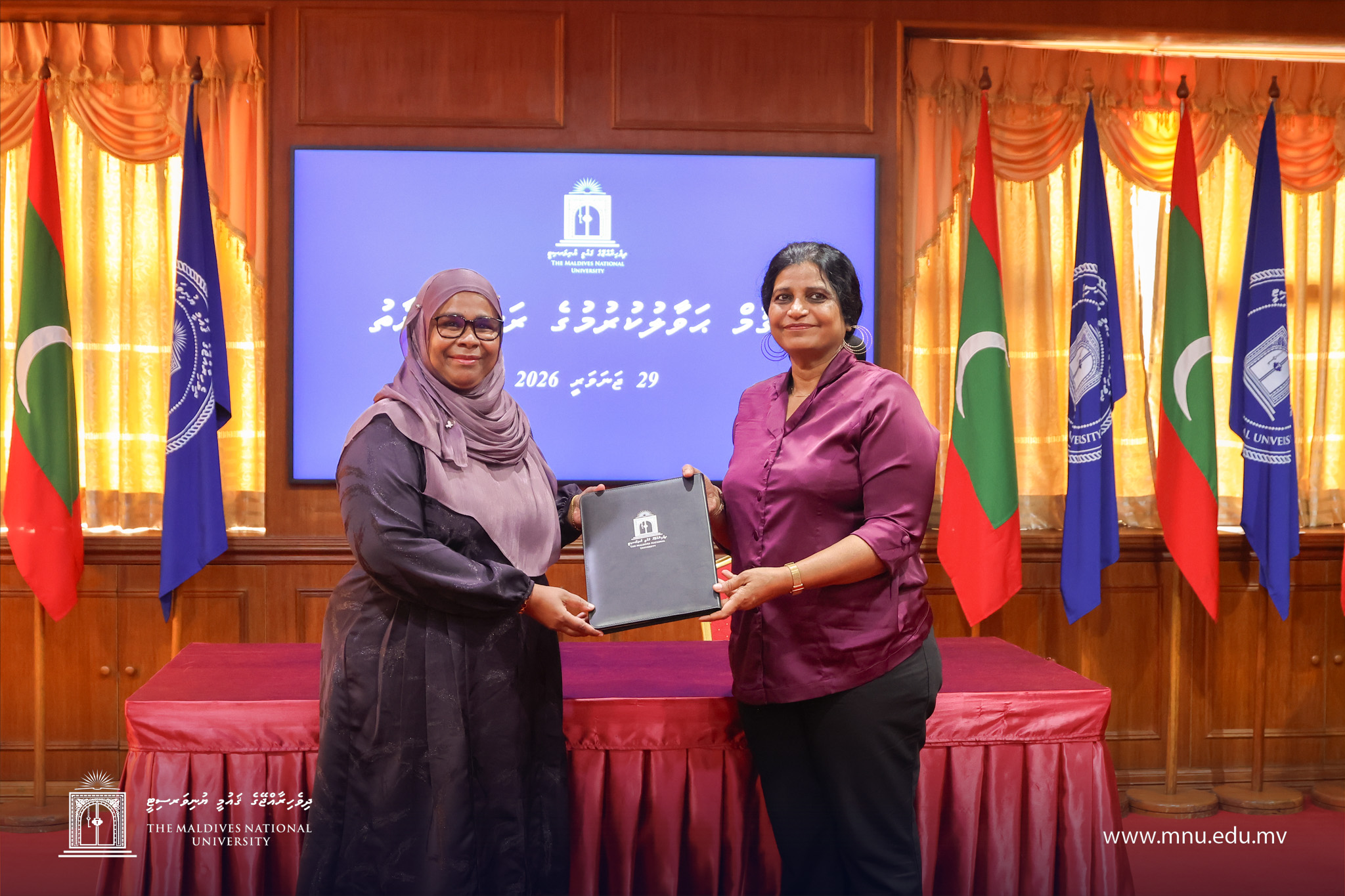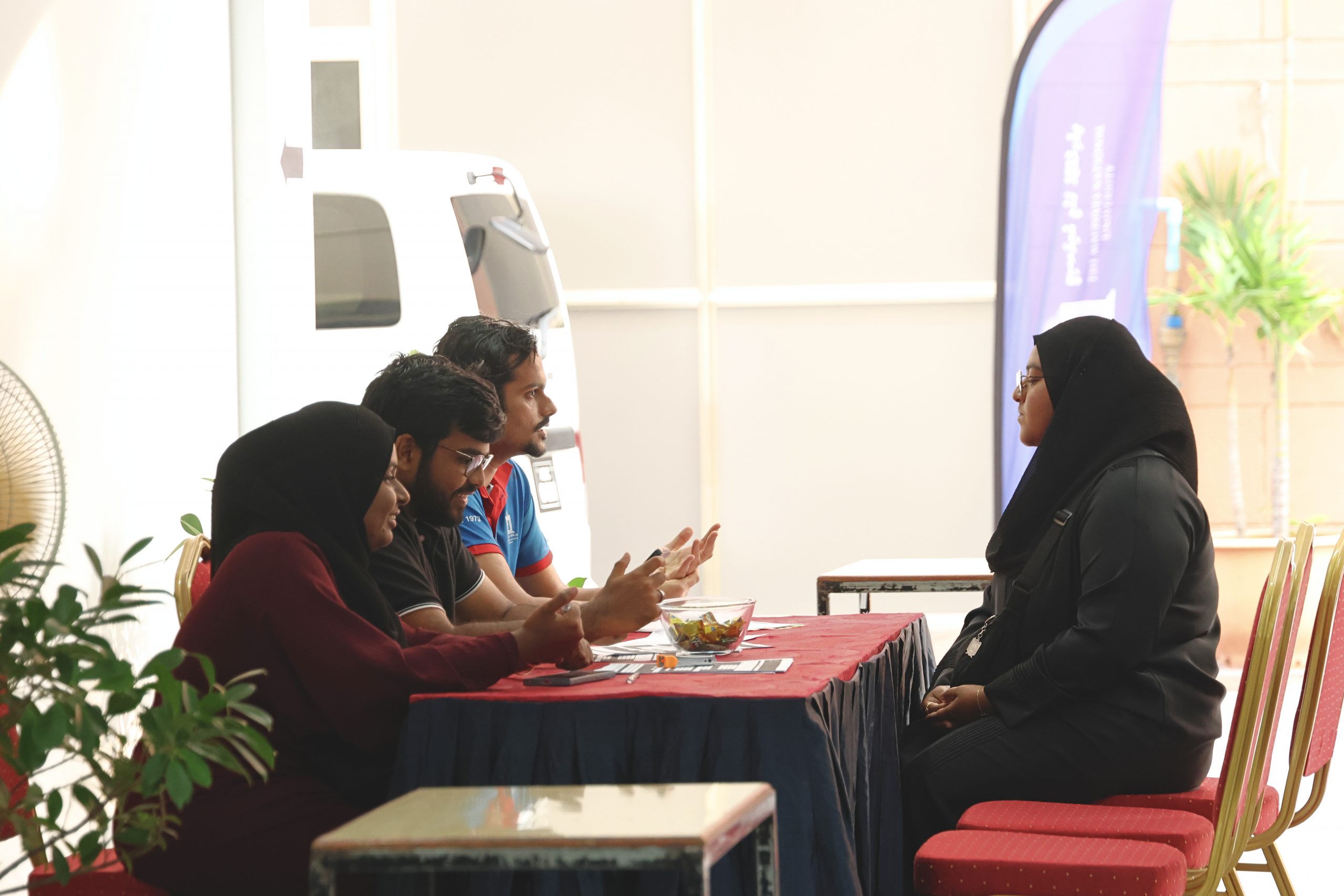Introduction
Regional stability and security are integral to strengthening foreign partnerships and interoperability. Defence cooperation transcends mere transactions of hardware and routine drills – i.e., defence cooperation acts as a linchpin for aligning shared interests, collective vision, and enduring trust between states.
For example, India-Maldives defence ties represent aspects of small states’ foreign partnerships and interoperability, informing the strengthening of alliances across the Indian Ocean region (IOR) – similar effects are observed through partnerships with like-minded countries like Australia.
Defence engagements have deterred external pressures, alleviated strategic anxieties, and encouraged goodwill across borders. For example, since the 1990s, the trilateral exercises among India, Maldives, and Sri Lanka have forged maritime capabilities to advance small states’ role in ensuring regional security.
Mutuality with small states via partnerships
Maldives has a minimal role in the realist framing of regional partnerships. However, India has been a steadfast defence partner to Maldives since 1988, embracing a flexible and responsive approach to train and equip their mutual needs. Defence diplomacy has been key to this.
Defence diplomacy is more than mere signing of agreements and building dialogue; it underpins military-to-military engagements that allow for building mutual capability through shared practices.
For example, the 2016 Comprehensive Action Plan for Defence formalises improved bilateral defence engagements. The Defence Cooperation Dialogue (DCD), Joint Staff Talks (JST), and Sector-Specific Training & Capacity Building provide the foundation to military-to-military exercises and operations. Spanning mutual logistics, training, information awareness, maritime security, and crisis response operations and exercises can allow Maldives to navigate its common interests with India to ensure a stable regional order.
Case 1: Building Interoperability and Understanding
Launched in 2009, Exercise Ekuverin (“Friends” in Dhivehi) focuses on joint counter-insurgency and Humanitarian Assistance and Disaster Relief (HADR) capabilities. Conducted alternately in Maldives and India (Uttarakhand in 2023), it reinforces social and operational bonds. Exercise Ekatha centred on naval and maritime security cooperation between the Indian Navy and the Maldives National Defence Force (MNDF). It supported other exercises by integrating both service branches and enhancing sea-based operational coherence.
Trilateral Exercise DOSTI – originally launched in 1991 and expanded to include Sri Lanka in 2012 – has enhanced military-to-military engagements among the coast guards of India, Maldives, and Sri Lanka. The 16th edition occurred in February 2024, near Malé, with Bangladesh as an observer.
These regular and well-structured exercises build trust, tactically align forces, and deepen regional solidarity. They also serve as tangible demonstrations of a predictable, and rules-based order in the IOR.
In 2006, Maldives received the Trinkat-class patrol vessel CGS Huravee from India. The ship acquired multiple refits – in 2018 (Visakhapatnam), 2021, and a major overhaul in Mumbai from November 2024 to April 2025 – before returning to its operations in Maldives in April 2025. The consistent maintenance support underscores India’s “Neighbourhood First” policy and the vision of – Mutual and Holistic Advancement for Security and Growth Across the Region – by ensuring Maldivian patrol capabilities remain uninterrupted.
Extending partnerships:
Maldives’ maritime capacity steps up with Türkiye’s Doğan-class Fast Attack Craft TCG Volkan (P343) to improve the oceanic island country’s defence capabilities. Australia followed in June 2025 by announcing the donation of a Guardian-class patrol vessel.
In addition to the sophisticated and autonomous operational capability of maritime security and Intelligence, Surveillance, and Reconnaissance (ISR), Maldives have inducted Turkish-built Bayraktar TB2 drones into service.
The Humanitarian Assistance and Disaster Relief (HADR) exercises with partner nations to foster maritime domain awareness in the IOR, collectively enabling larger domestic capabilities for vessel maintenance and harbour operations such as the Ekatha Harbour and Uthuru Thila Falhu (UTF) projects.
The integration of sea and air assets enhances its interoperability with regional security actors, and these would strengthen Maldives’ long-term sovereign capacity to maintain autonomy and control in its maritime environment.
Case 2: Maritime Domain Awareness
Maritime Domain Awareness (MDA) – i.e., monitoring events at sea that affect security, economy, environment, and safety of a nation – is central to regional maritime governance.
For example, equipped with patrol vessels, Dornier aircraft, Dhruv helicopters, and air-surveillance assets like the Unmanned Aerial Vehicles (UAVs) inducted to MNDF can advance surveillance of its EEZ, conduct search-and-rescue (SAR), medical evacuations (MEDEVAC), and enforce maritime law – crucial in a country where 99 per cent of national territory is water.
Maldives, an archipelagic nation, is strategically located in the Indian Ocean, approximately 230 nautical miles southwest of the Indian peninsula. This geographic positioning grants Maldives a substantial Exclusive Economic Zone (EEZ) spanning an estimated 923,322km2. Its waters are traversed by critical international shipping lanes, including the Eight Degree Channel, Equatorial Channel, 1½ Degree Channel, and Kaashidhoo Channel, underscoring the nation’s pivotal role in global maritime trade and connectivity.
Further, Maldives Civil Aviation Authority aligns with International Civil Aviation Organisation (ICAO) standards, coordinating aerial surveillance. Integrating civil and military air data with radar systems creates a holistic surveillance overview, advancing Maldives’ contribution to the regional fusion networks and improving transparency and response capabilities to govern its maritime security.
The DOSTI trilateral exercise sits alongside forums like the Colombo Security Conclave (CSC). Launched in 2011 and rebranded in 2022, the CSC addresses five pillars: maritime safety, counter-terrorism, transnational crime, cyber-security, and humanitarian response. This mini‑lateral cushion reinforces a regional security architecture, expanding Maldives’ role.
Through its radar data and liaison officers at the Information Fusion Centre-Indian Ocean Region (IFC‑IOR), Maldives enriches a shared maritime picture of the Western Indian Ocean, bolstering early detection and response against IUU fishing, piracy, trafficking, and other maritime threats. This collaborative MDA framework delivers tangible benefits for all democratic littoral nations.
Case 3: Humanitarian Assistance, Disaster Relief, and Soft Power
Maldives, an archipelagic nation of 1,192 coral islands, frequently confronts natural calamities, with MNDF at the forefront of humanitarian response. During the 2004 Tsunami, it led large-scale rescue and relief operations, including setting up coordination centres and shelters across affected islands.
In 2014, following the disruption of Malé’s water infrastructure, MNDF coordinated India’s “Operation Neer,” which delivered over 1,000 tonnes of fresh water via sea and air assets. Amid the 2020 pandemic, MNDF managed logistics and distribution for India’s “Operation Sanjeevani,” which airlifted approximately 6.2 tonnes of essential medical supplies to Maldives.
Response capability is heightened through bilateral HADR drills, joint sea-rider and pollution‑control exercises, MEDEVAC and med-team transfers – where approximately 630 operations have occurred since 2019.
This potent mix of “hard” and “soft” security evolves defence cooperation into multidimensional goodwill.
Challenges and the Road Ahead
Diplomacy and regional cooperation, Maldives extends its cooperation with all partners who share mutual interests to maintain harmonious relationships and deepen interoperability. Maldives aims to further enhance its national force’s technical capabilities to effectively undertake security operations, and advance and maintain maritime platforms, ensuring mission readiness in maritime security governance.
MDA can link civilian agencies, national coast guards, airlines, shipping industries, fisheries, the environment, and policing. A whole-of-society approach will ensure maritime governance is comprehensive, beyond just military networks.
A unified regional MDA grid – from Maldives to East Africa to Southeast Asia, joint capacity-building in autonomous systems – artificial intelligence, cyber defence, quantum communications and joint investment in coastal surveillance infrastructure, remote-sensing satellites, and drones.
Conclusion
Defence cooperation fosters trust, shared identity, resilience, and regional leadership. Through training, exercises, hardware sharing, maritime fusion, and humanitarian engagement, partner nations are weaving a tapestry of security that benefits littoral small states, deters external coercion, and promotes a rules-based order in the Indo-Pacific. More than defence, it is strategic diplomacy with substance, a promise for collective security and building resilience where small states play a larger role.
Author
Col Amanulla Ahmed Rasheed is a serving officer in the Maldives National Defence Force (MNDF). He has two postgraduate degrees, in Management from Kotelawala Defence University, Sri Lanka and Art and Science in Warfare from the National Defence University, Pakistan. The author acknowledges that statements, opinions and arguments made are of his own and do not reflect the Maldivian Government’s policy and position.





